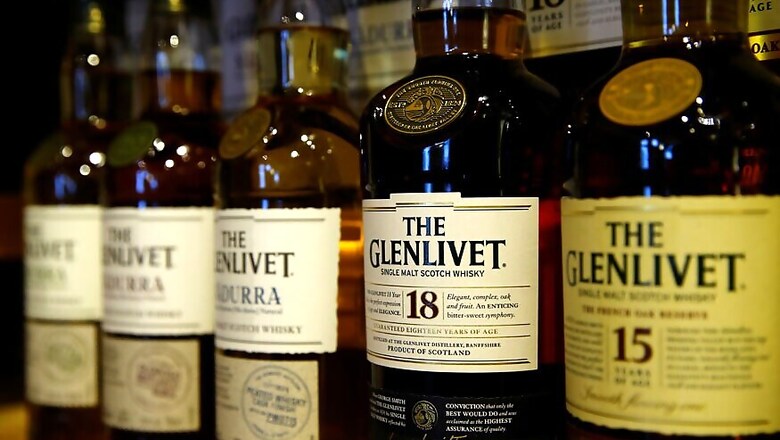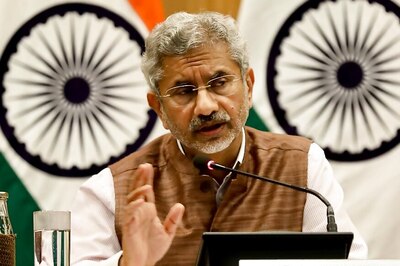
views
 You might have read about resistance through protest marches, dharnas, speeches, demonstrations, poetry, theatre etc. But what about resistance through whiskey? Can a country win a battle through a drink it distills?
You might have read about resistance through protest marches, dharnas, speeches, demonstrations, poetry, theatre etc. But what about resistance through whiskey? Can a country win a battle through a drink it distills?
In the year 1707, that was exactly what time demanded when England flexed its muscles and incorporated its neighbour Scotland to become the United Kingdom.
Like any other country reeling under imperialist power, Scotland too not only had to fend for itself, but had also got to find money to fund the English army maintaining law and order at their home. They could have suffered anything in silence but when the big brother set his eyes on the drink the Scots had been distilling for centuries they had no other way but to fight.
The British levied tax on the locally distilled drink ‘uisge beatha’. And rubbed salt on the Scottish wound by mispronouncing the drink as ‘whiskey’.
Soon, whiskey became not just a drink it became a mascot for Scottish pride and resistance. The poor drink can’t be distilled economically with all that tax levied on it, the Scots knew.
The tradition must not die.
What began was the great Scottish tradition of illicit distillation of whiskey.
England was serious with the ban on the stuff. But the few tax inspectors the English had deployed in Scotland could hardly do anything effective to check the flow of liquid contraband that flowed on myriad ways. The undulating landscape of Scotland covered with snow was the ideal paradise for all the moonshine distilled in small batches especially in Highlands. Add to that, the Scottish grit of resistance.
Imagine the scene. The moment tax inspectors arrived in a village they would be welcomed by hoisting flags or by the sight of chimneys spewing dark smoke into the air. Soon, the officials would see more smoke rising from villages on distant hills as well. That was the way the villagers told distillers and moonshiners in far way places in the mountains that trouble had arrived in uniform and a raid is imminent. Beware!
Smuggling whiskey became a cohesive force bringing the whole Scottish community together. People invented ingenious methods to evade inspection. Young women wore voluminous skirts with containers of whiskey underneath. Who could muster the courage to stop them! And you know, pregnant ladies everywhere and in all times are treated with respect. But what if they come pregnant with two-gallon belly canteens strapped on to their waist!
Even priests refused to become spoilsport in the national game Scotland played during the time. Barrels of illicit stuff were stashed under their church pulpits and often you could see them blessing empty coffins carrying spirits that needed salvation not from the devil but from the English.
Animals too were recruited. Those days one could see dogs making solo treks across mountain paths carrying pig bladders sloshing with you-know-what. And you could make a hell of money if you were a farmer. All you had to do was to drive your herd to the market every week with hundreds of casks tied to their bellies.
True, a few people were nabbed. But conviction was a joke with the local judge finding every excuse to acquit them. Even if convicted the prisoners were allowed to go home at nights to tend their stills on the condition that they should turn in the following morning with enough stuff for the guards.
Here is the irony. The biggest consumers of Scotch whiskey were the English people. Licensed commercial distilleries were aplenty in the country but who would want the mass produced drag when you can get superior carefully tended, small-batch whiskies from the Highlands! The hardships the drink went through to evade the tax officials and cross the border added to its mythical appeal.
Imagine, in the 18th century there were 14,000 illegal still in Highlands.
The farce came to its climax when King George IV of England visited Scotland in 1822. Pretty soon the king fell in love with the place, and in one fine evening he confided to his Scottish hosts whether they could get him whiskey from a place named Glenlivet. The Scots froze hearing the request. They all had the stuff, but they all were illegal.
Who cares! It is the king himself (the one who banned it) who is asking. When they found that the king was earnest in his request, jubilation broke out. The scots had only one confusion. There were two hundred illegal distilleries in Glenlivet and which one should be served at the dinner!
The king was royally grateful. The first thing King George IV did as he got back to England was to lift the ban on whiskey from Scotland. Glenlivet won the battle both for whiskey and Scottish pride.
(Manu Remakant is a freelance writer who also runs a video blog - A Cup of Kavitha - introducing world poetry to Malayalees. Views expressed here are personal)

















Comments
0 comment